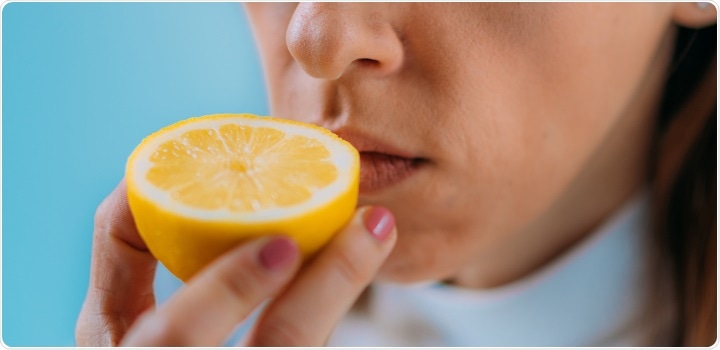Researchers at the University of East Anglia and James Paget University Hospital are launching a new project to see whether Vitamin A could help people regain their sense of smell after viral infections including COVID-19. We also spoke exclusively to Professor Carl Philpott who is leading the study to find out more.

Image Credit: University of East Anglia
Smell loss is a common symptom of COVID-19, but even before COVID, many viruses had been causing smell loss and distortion and while most people naturally regain their sense of smell within a couple of weeks, many have been left with ongoing smell disorders.
We asked Lead researcher Prof Carl Philpott, from UEA's Norwich Medical School and James Paget University Hospitals NHS Trust why this is and he said the following;
Viruses may differ in their mechanisms of action but they are generally thought to cause the fine hair like endings (cilia) of the smell receptors to fall away, leading to loss of function.
It is not clear why some people are left with ongoing smell disorders and others are not. It is possible some who have persistent problems have greater numbers of the ACE2 receptors that allow the spike protein to enter and infect the smell."
Previous research from Germany has shown the potential benefit of Vitamin-A, and the UEA team will explore how this treatment works to help repair tissues in the nose damaged by viruses.
They hope that the study, which has been funded by the National Institute for Health Research (NIHR), could one day help improve the lives of millions around the world who suffer from smell loss, by returning their fifth sense.
The Apollo research team will work with patients who have lost their sense of smell due to a viral infection.
They will either receive a 12-week course of nasal vitamin A drops or inactive equivalent drops and have their brains scanned before and after the treatment. The scans will be compared to those of a control group who have not been treated with vitamin A drops.
When asking Professor Carl Philpott about what the study will be looking for, and how to get involved, he said the following;
We will be measuring the size of the olfactory bulbs and also brain activity in response to varying smells.
You can get involved in the Apollo Study using the following link: https://rhinology-group.uea.ac.uk/apollo-trial/"
Duncan Boak, Founder, and Chair of Fifth Sense said: “At Fifth Sense we have engaged with thousands of people who have experienced changes in their ability to smell or taste as a result of the COVID-19 virus. They join an already large community of people with a smell disorder that pre-dates the pandemic.
“The question we are most often asked is about available treatments to support recovery. Not being able to smell is not only physically distressing but can affect the enjoyment of social occasions and present hazards and risks that might never have been previously considered such as not being able to detect gas leaks or spoiled food.
“Research into potentially successful interventions is vital to help people feeling the impact of smell disorders that affects the quality and enjoyment of their life.”
To take part in this trial, patients need to be referred to The Smell and Taste Clinic at the James Paget University Hospital by their GP. Recruitment is expected to begin in December 2021.
Following this study, Professor Carl Philpott aims to "keep developing new treatment options and coping strategies".